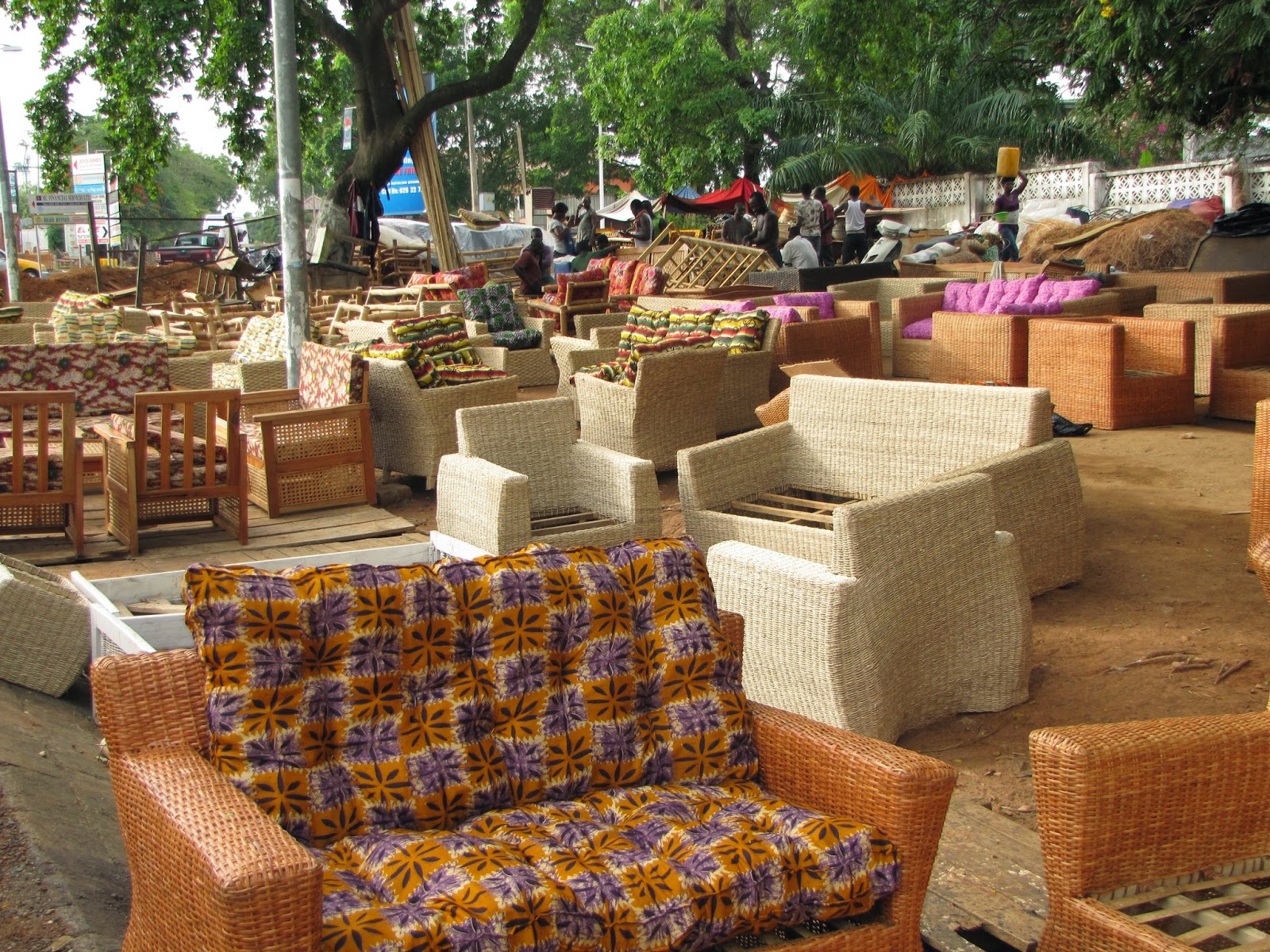By: Fred Yaw Sarpong
Countrymen
Cane Weavers Association (CCWA), an umbrella body of cane weavers in Accra, is
calling for support to help improve upon their finished products for export.
‘What we need is a support from the government
so that we can produce more quality products for both local and international
markets. We can earn a lot of foreign exchange from this work,’ Mr. Jonas
Kusis, Chairman of the CCWA told the Daily Express. Mr. Jonas Kusi is the
Chairman of the CCWA, he told Daily Express that their products are quality,
compared to other products from other countries such as China and other Asia
countries as well.
‘Our
products are of high quality compared to others from other countries such as
China and other Asian countries,’ he said.
Though
the cane weavers say they have been in existence for years, the association,
numbering about 70 was formed two years ago after they realized they have to
come together to promote their common interest. The group located at Cantonment
Switch back road, near WAEC Examination centre.
Admitting
that some foreigners used to come and
export some of their products overseas, he indicated it has ceased for
sometimes now, thereby affecting their business operations.
‘The
future is bright for our business. However, little support from the government
and other stakeholders in the private sector will cushion our business,’ he
appealed.
‘It
is this kind of work we have been doing for the past years to cater for our
families. Until last year, the business has been going on well,’ said Mr. Kusi.
The
association stated that one of the challenges facing them is the rising cost of
raw materials used to produce their finished items. ‘Our suppliers have
increased the cost of raw materials and that has affected our business,
especially the sales,’ they noted, adding that this is a big problem for them.
They
indicated that they will prefer to be given permit, in order to go and harvest
the materials from the forest for their product. ‘We also don’t have a
permanent place to work. We have been confronted a lot of times to move from
here. But the truth is that we do not have anywhere to go. We therefore, asking
the authorities to assist us get a permanent place to relocate,’ said one
weaver.
They
claim that even though they do not own their current place, every year, they
pay levies to the Accra Metropolitan Assembly (AMA) and tax to Ghana Revenue
Authority (GRA).
Mr.
Kusi said that apart from the members, they have been training the youth and equipping
them with skills. ’A lot of the youth come to learn from us, and most of them
are doing well out there,’ he noted.
The
cane weavers produce different kinds of items. They include baskets, doors,
chairs, beds, set of room furniture and among others.
The
sale of basket seems to be the major among all the products. Daily Express
gathered that every Christmas the sales of basket improve a lot, due to hamper
making.
‘But
last Christmas was bad for us. Sales of basket reduced significantly. But we
hoping that we will see improvement this year. Our prices are cheap too,’ said
the group.


Comments
Post a Comment